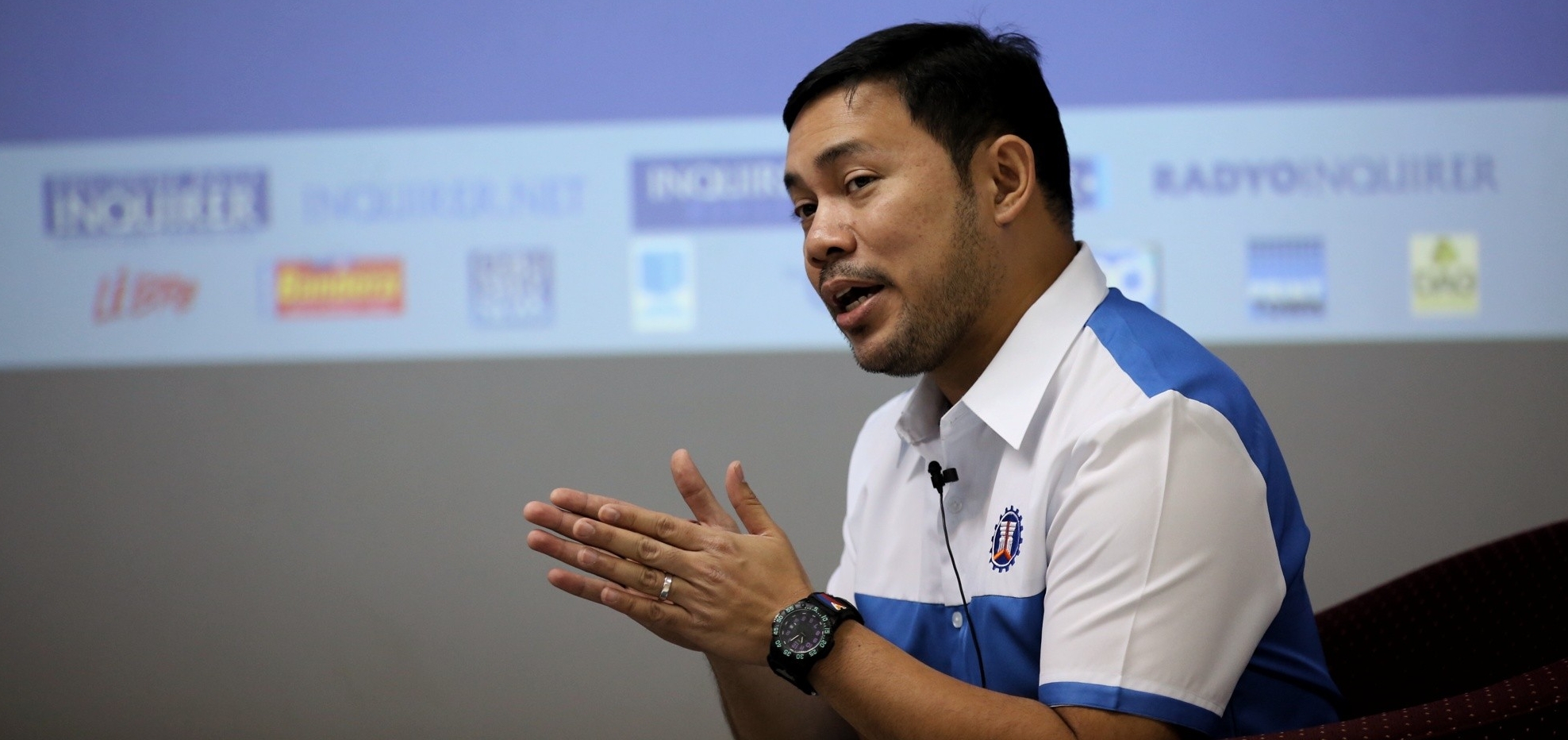With much to build, Villar finds strength in little daughter
More than two years into his job, Secretary Mark Villar has borne the brunt of allegations of corruption in the Department of Public Works and Highways (DPWH) and that it is mired in inefficiency and inaction — issues that, though not new, have long plagued one of the best-funded government agencies for decades.
And as if the DPWH’s tainted history is not enough of a worry for the youngest Cabinet member of the Duterte administration, Villar is also tasked with carrying out the President’s flagship “Build, Build, Build” program, tauted as the country’s ticket to a “golden age of infrastructure.”
When he accepted his post in May 2016, Villar said he knew that the job would not be a walk in the park. After all, he learned from his billionaire parents, reelectionist Sen. Cynthia Villar and former Senate President Manny Villar, that nothing could ever be achieved without hard work.
“People sometimes take that for granted. There is no overnight success. It looks like it but that’s decades of hard work. That’s what I learned from [my parents] — to put maximum effort on everything you do in life. You will encounter problems, but definitely, all these things can always be overcome,” Villar said at a recent Meet the Inquirer Multimedia forum.
To address the DPWH’s perennial problem of projects not being completed on time, Villar implemented the Project and Contract Management Application system in 2017 to help better monitor and analyze the progress of the department’s projects. The system provides the DPWH with “real-time updates” on all projects from the ground up.
Delinquent contractors
So far, the system has helped the DPWH identify 14 delinquent contractors, which have all been banned for a year from participating in public works projects. Twenty-nine more contractors are still under investigation for delinquency.
Villar said the system also allowed his office to address issues on corruption and to improve its rates of disbursement and obligation, liabilities committed to be paid for by the DPWH, in the past year.
Source of inspiration
“Corruption is a function of discretion. The more you have systems, controls, the more you minimize corruption,” he said.
Admittedly, Villar said the pressure to deliver on the administration’s public works promises takes its toll on him. One thing that keeps him going, though, is Emma, his 3-year-old daughter with Justice Undersecretary Emmeline Aglipay.
“She’s my inspiration,” Villar said. “If I feel that the pressure is getting too much, I just think about her. In the end, this will be all for her.”
With the myriad projects being started by the DPWH, Villar acknowledged that these would “entail some sacrifice [from] and inconvenience” to the public. But he is willing to be criticized for the trouble since these will be for the benefit of future generations of Filipinos, he said.
Over the next few months, he will lead the rollout of various projects meant to ease traffic congestion, such as the Harbor Link and the Sta. Monica-Lawton Bridge in Metro Manila as well as the Rosario section of the Tarlac-Pampanga-La Union Expressway.
Other projects set to be started this year by the DPWH are the TR4 extension of the South Luzon Expressway to Lucena City and the Panay-Guimaras-Negros interisland link bridge.
No need to take credit
While critics have accused the Duterte administration’s Build, Build, Build program of credit-grabbing for certain infrastructure projects approved during the term of former President Benigno Aquino III, Villar shows no interest in it.
He does not mind where credit for the projects may be attributed to, he said, only that these be completed on time since taxpayers’ money was spent on them.
“[Build, Build, Build] is about finishing what you have to finish, whether it was started by whichever administration. That’s the problem sometimes. Because it was started by the previous [administration], they would no longer finish it just because they’re concerned about credit. It’s counterproductive,” Villar said.
“Don’t give me any credit for anything, that’s fine by me. I just want to show you what we’ll accomplish in the next few years,” he added.
20,000 projects in progress
With over 20,000 projects being implemented by the DPWH, Villar said that many were bound to experience problems along the way, such as right-of-way issues. Sometimes, he said, there is a “humanitarian factor” to such problems, such as when a resident seeks time extension in order to find a place to relocate.
What really irks Villar is the habit of some engineers, public and private, to dig up and repave a newly constructed road. He said good roads should be fixed only after a certain period of time.
“We have to be systematic in our approach. Recommendations [for road work] should have basis. If an engineer couldn’t justify it, we will [apply] sanction immediately,” he said.
But that is a matter Villar admits still needs some work. He said they needed to put in place a system that could better monitor these projects.
“That mystery will be resolved once a system has been put in place,” he said.
